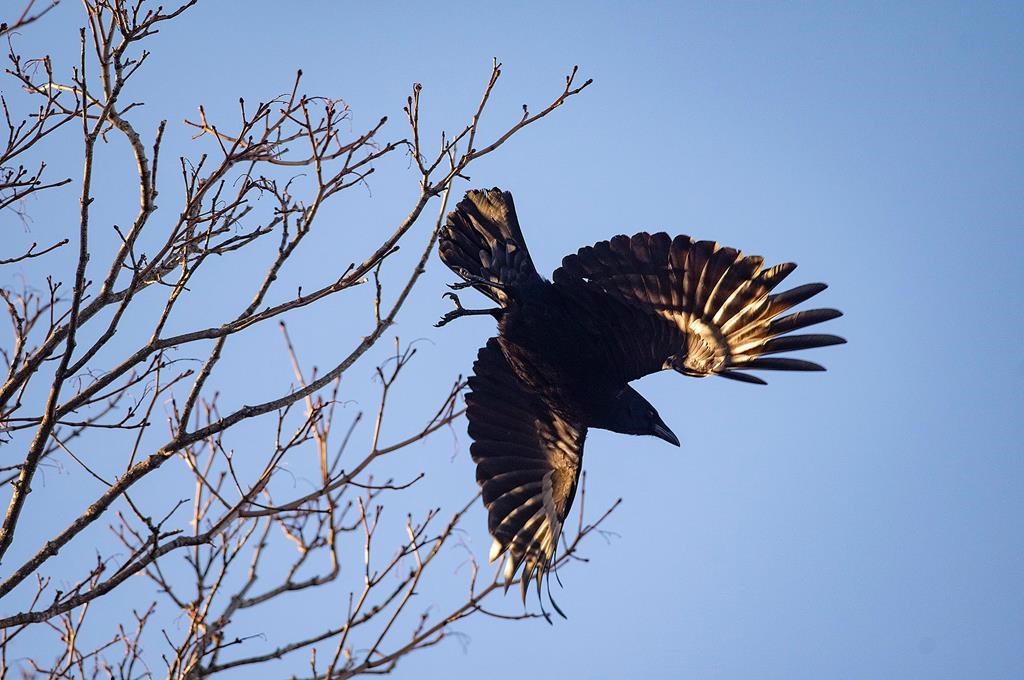A bird flu outbreak among Canadian geese in Kingston has spread to crows and has also been confirmed in a Bald Eagle found dead in the city.

The birds were sent for testing at the Canadian Wildlife Health Cooperative after each were found dead last week, and all three tested positive for highly pathogenic avian influenza, the cooperative confirmed this week.
Kingston has been dealing with an ongoing outbreak of highly pathogenic avian influenza (HPAI), subtype H5N1 in geese, with dozen of the birds turning up dead along the shoreline at Lake Ontario Park since the start of the month.
Leah Birmingham, medical director at Sandy Pines Wildlife Centre says it’s not surprising to now see HPAI showing up in scavenger species.
“That’s pretty common, ” she said when reached by phone earlier this week. “If an animal of any sort dies from a disease and that disease is transmissible to the animal that eats it, then there’s a good chance that animal’s going to end up with it as well.”
Kingston, Frontenac and Lennox & Addington Public Health says 12 birds including eight geese, one eagle, and three crows have tested positive for avian influenza between Feb. 7 and 21.

Get weekly health news
The local deaths are part of a global avian influenza outbreak that’s killed millions of birds across the country in the past five months, according to recent numbers from the Canadian Food Inspection Agency.
So far this year, more than 200 Canada geese as well as gulls, crows and a Bald Eagle have been found sick or dead from HPAI in southern Ontario, according to Environment and Climate Change Canada (ECCC).
Most of these cases – roughly 150 – have been detected in the Kingston area, according to the ECCC.
Birmingham says while it may be concerning to see the virus spread to further bird populations, the risk to humans remains low.
People most at risk, she said, spend a lot of time close to sick birds, like poultry farmers or medical workers.
The city has previously warned people not to touch sick, injured or dead wild birds. If handling wild birds or other wildlife is unavoidable, officials advise wearing gloves or a double plastic bag over your hands and avoid blood, body fluids and feces.
Hands should be washed thoroughly with soap and warm water after handling a sick or dead bird, the city has said.
Birmingham recommends protecting pets by keeping cats indoors and dogs on a leash.
Anyone who sees a distressed or dead bird is asked to report it to the Canadian Wildlife Health Cooperative at 1-866-673-4781 or online at the organization’s website.
Birds in distress can also be reported to Sandy Pines Wildlife Centre at (613) 354-0264.
Overall Birmingham says there’s no reason to be worried about the ongoing avian influenza outbreak in Kingston.
“Seeing people overreact and get paranoid is what I really hate to see,” she said. “This is a cycle that happens in, in wildlife and especially in dense populations and then there’s a spillover onto other populations, which are scavengers. It’s freaky, right? It’s it’s scary, but just, you know, be concerned but not alarmed.”
— With files from Global’s Saba Aziz




Comments